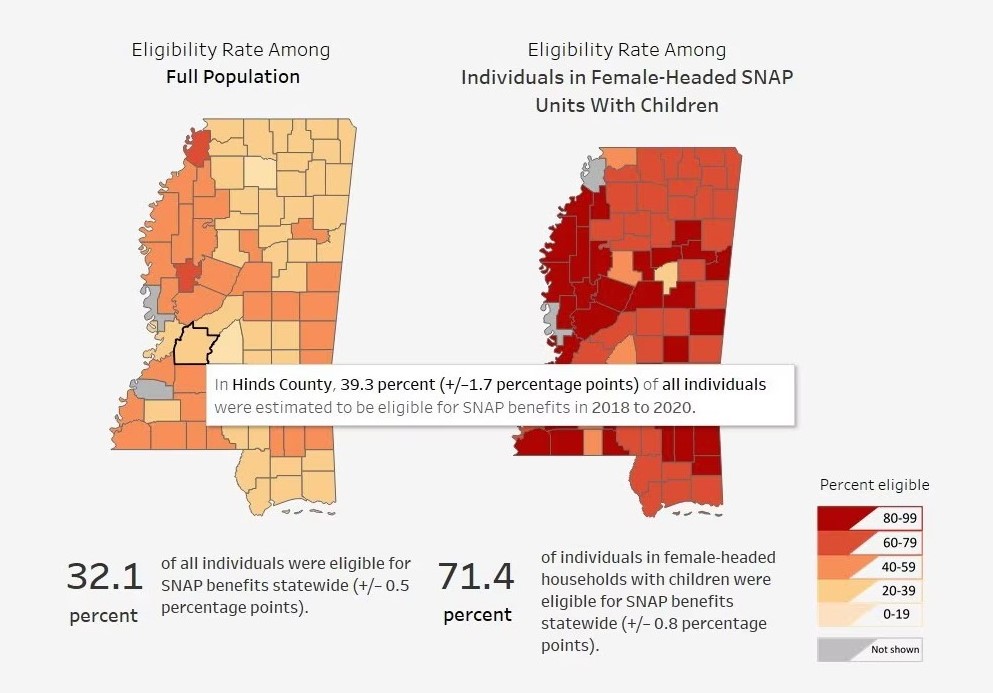Census: Mississippi has highest percentage eligible for food assistance in U.S.
Published 6:25 am Monday, January 23, 2023
One in three Mississippians are eligible for Supplemental Nutrition Assistance Program (SNAP) benefits, making the Magnolia State the leader according to stats coming out of the 2020 United States Census.
According to information from the US Census Bureau, a new interactive tool uses data from the American Community Survey (ACS) and state administrative records to capture the age, race/ethnicity, household composition, presence of children, internet access and veteran and health insurance status of SNAP recipients and potential candidates. The recently redesigned visualization, which shows SNAP benefits in 1,157 counties in 23 states, aims to increase understanding of access to SNAP and inform future outreach.
How the Tool Was Built
Analysts from the Census Bureau linked individual ACS records to state administrative records of SNAP participants, following a methodology outlined in a 2013 report. The redesigned visualization features new estimates of 2020 SNAP eligibility and access in 13 of the 23 states featured.
“We identified people likely eligible for SNAP benefits (based on ACS responses to questions about family structure, income, shelter costs and participation in other safety-net programs),” a statement reads. “For those identified as likely eligible for SNAP, we determined if they received SNAP benefits at any point in the 12 months prior to the survey.”
The agency then combined one year of ACS data with two years of state administrative records to determine state-level estimates, and three years of ACS data and four years of state administrative records to determine county estimates.
Mississippi Ranks Highest in 2020
The redesigned visualization features new estimates of 2020 SNAP eligibility and access in 13 of the 23 states featured. Among them, eligibility was lowest (13.1 percent) in Wyoming and highest (32.1 percent) in Mississippi.
The eligibility rate in Mississippi varied widely considerably among demographic subgroups.
For example, 53.1 percent of non-Hispanic Black alone Mississippians and 19.5 percent of the state’s non-Hispanic White alone populations were eligible for SNAP benefits.
Households with children were much more likely than those without minors to qualify.
About one in four (26.9 percent) Mississippians in households with no children were eligible for SNAP benefits in 2020. In contrast, 33.9 percent in households with school-age children only; 41.8 percent in households with preschool-age children only; and 45.0 percent in households with both preschool- and school-age children were eligible.
Eligibility varied a lot at the county level, too. For example, Hinds and Rankin are neighboring counties in central Mississippi and among the state’s most populated. But the SNAP eligibility rate in Hinds County (39.3 percent) is double the eligibility rate of Rankin County (19.3 percent).
The maps also highlight county-level trends in SNAP eligibility among the demographic subgroups. In more than 30 counties in Mississippi, the SNAP eligibility rate among individuals in female-headed families with children is more than 80 percent.
The Census Bureau created and routinely updates the data visualization with support from the USDA’s Economic Research Service and Food and Nutrition Service and data from multiple state partners.






